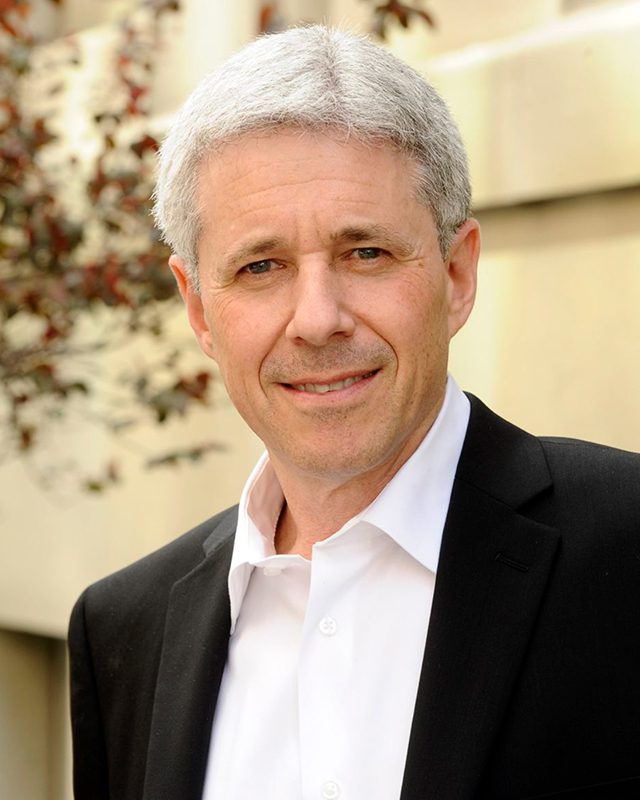This month, members of the Ontario Medical Association begin voting for the next president of the Canadian Medical Association.
Ahead of the election, which runs from Feb. 15 through March 7, Healthy Debate decided to put four questions to each of the candidates. Each day this week, from Monday through Thursday, we present all of their answers to one of the questions. We’re calling this series “Four for four,” and we believe it offers a unique opportunity to get to know the candidates and gain an understanding of the next president of the CMA.
The four candidates are: palliative care physician Dr. Sandy Buchman; psychiatrist Dr. Mamta Gautam; emergency physician Dr. Atul Kapur; and family physician Dr. Darren Larsen. Below, they answer the third of the four questions Healthy Debate asked.
Read their answers to the first question (on immunization); and the second (on physician burnout).
The greatest benefits and downsides to the increasing emphasis on patient-centredness are…
There are mostly benefits to this emphasis. It’s important to start by saying that I don’t think that being patient-centered means that we must accede to every patient demand, particularly when we are exposed to advertising, mostly from the U.S., that drives demand that is often unnecessary.
Many Ontario physicians, especially those of us who have been in practice for a while, view patient-centered care with some suspicion. I think that’s because here in Ontario it has been pushed out by bureaucrats and consultants, often as part of an “accountability” exercise. For many, it looks like one more thing in a long list of programs and approaches that result in destabilizing medicine as we know it with unclear benefits.
However, it doesn’t have to look like that. The evidence from around the world is undeniable: jurisdictions that have embraced patients as partners have better results. Physician professionalism is not eroded, in fact, doctors report higher professional satisfaction. There are also better patient outcomes (possibly due to better patient adherence) and improved patient experience reviews. There’s also some evidence that demonstrates better value for money. Something that is better for the profession, our patients and the system needs to be taken seriously. Done correctly, this can be the path towards the Quadruple Aim (Improved clinician experience, Improved patient experience, Better outcomes, and Lower costs).
The doctor-patient relationship is by far the most powerful bond in the health care system. We need to protect that bond by ensuring that we respect changing patient attitudes and needs. Sharing power with our patients is an important way to protect ourselves from the encroachment of others into that relationship. By better meeting our patients’ needs we also serve to strengthen our own position in the system.
Dr. Atul Kapur is an emergency physician in Ottawa, political advocate and proponent for a smoke-free Canada.
The greatest benefits and downsides to the increasing emphasis on patient-centredness are…
The benefit of increasing emphasis on patient-centredness is obvious: improvement in health outcomes we see when patients are true partners in decisions made in their care. It is impossible for doctors to know everything their patients value, think and feel. Taking a patient-centred approach ensures there is no guessing what is right for the patient. It creates space for meaningful conversations about difficult choices. It brings humanism to the person sitting in front of us who we want to help with our experience and knowledge. When as physicians we put aside things we want for our patients, and instead act on what they want, even when we don’t completely agree, we build a stronger bond and sense of trust. This creates an enduring relationship that is good for both of us.
There is only one downside to an emphasis on patient-centred care. This is that it is has become so easy to say that it’s losing its meaning. Many institutions say they focus on patients, but far fewer can actually demonstrate how. Does it take more time? Overall, no. In the long term patients become more independent and care for themselves better when partners, and this will save us time. Does it fly in the face of evidence? On the contrary. There is increasing proof that patient partnerships produce far better outcomes and adherence to treatment plans. Does it challenge the old paradigm of paternalistic care? Absolutely. But with training about care co-design, and data that shows improvement it is impossible to argue that this is isn’t the right thing to do.
It is possible for the CMA to move toward a patient-centred approach and still represent the thoughts and feelings of its physician members. This will take bold leadership. I believe in this work and will fight to see that it happens in a way that is good for all of us.
Dr. Darren Larsen is a family physician with Women’s College Hospital Family Practice Health Centre and Chief Medical Information Officer for OntarioMD.
The greatest benefits and downsides to the increasing emphasis on patient-centredness are…
The benefits of a patient-centred approach to care come from putting the patient at the heart of every health care decision and empowering them to be genuine partners in their care. By asking “What matters to you?” instead of “What’s the matter?” allows the clinician to focus on what the patient actually cares about and enables them to be a collaborator in their care. When this approach is used, evidence now supports better clinical outcomes, improved patient safety and population health. Shared accountability and decision-making resulting from a patient-centred approach facilitates trust between care provider and patient by recognizing personhood and dignity. Another benefit of patient-centred care is ensuring that the patient’s personal goals of care are understood, respected and honoured at the end of life.
Perhaps the downside to patient-centredness is that this concept is not fully understood by the public, many health care professionals and organizations. The term “patient-centredness” has become overused, seems like jargon, and thus engenders misunderstanding. It can mean completely different things to different individuals or groups. Patients may think it is “whole person” care, reflecting their wishes and values. Clinicians might think it’s agreeing to whatever a patient wants (to support their personhood and autonomy) even if they think the patient’s choice of treatment is not in their best interest. Patients serving on committees that are “patient-centred” may have no real involvement in shared decision-making and thus perceive that they are mere “tokens” and become resentful.
When there is no clear understanding of the term, there can be no ability to develop common goals or strategy which can lead to improvement in an individual patient’s health or in health system performance. I will lead a national discussion to clarify and define these terms so everyone has a common understanding of the meaning, its implications and expectations.
Dr. Sandy Buchman is a palliative care physician providing home-based palliative care through Mount Sinai Hospital and palliative care for the homeless through St. Michael’s Hospital in Toronto.
The greatest benefits and downsides to the increasing emphasis on patient-centredness are…
Patient-centeredness, defined by The Institute of Medicine as “care that is respectful of and responsive to individual patient preferences, needs, and values,” is a key aspect of high quality patient care. Patient-centered care has great benefits, such as improved care processes and health outcomes; improved communication; and stronger partnerships between patient and clinician. There is a strong business case; patients who report stronger relationships with their clinicians undergo fewer tests, and are less likely to pursue legal action for medical errors. The treating physicians and their teams also benefit, feeling higher satisfaction knowing that they have effectively addressed their patients’ needs.
However, we are also recognizing that there can be downsides to this approach, both for the patient as well as the physician. This focus can be used to improve patient adherence to treatment plans and, thus, save time and money. This places additional demands on patients to also be informed consumers of health care, and participate, engage, evaluate and/or question their care. Not all patients are able to meet this expectation, resulting in an uneven health care playing field that can put some patients at a serious disadvantage.
Many health care systems rely on patient satisfaction surveys to assess how successfully they are implementing a patient-centered approach. These surveys are highly subjective and can be inadvertently anti-provider, particularly when they are used as indicators of competence or tied to compensation. I have consulted with U.S. hospitals to work with physicians with lower scores, and see firsthand how this can negatively impact physician well-being, leading to a reduced sense of control, autonomy and joy. My MBA thesis addressed patient-centered care; one of my key conclusions was that we cannot have patient satisfaction without physician satisfaction. Perhaps we should aim for “relationship-centered” rather than “patient-centered” care.
Dr. Mamta Gautam is an Ottawa-based psychiatrist, and an expert in physician health and physician leadership.






The comments section is closed.
I like the helpful info you provide in your articles. I’ll bookmark your blog and check again here frequently. I am quite sure I’ll learn lots of new stuff right here! Best of luck for the next!
Your summary statement is spot on. A “Relationship-centred” philosophy ensures optimum patient/provider satisfaction – healthy “chi”.
I like the responses from the doctors, but it does bring to mind, does that philosophy actually pan out in the way it was worded or how I perceive said philosophy, in the clinicians office?
To be not heard is a horrible feeling, it results in frustration, doctor hopping, becoming the dreaded squeaky wheel and often results in profiling of the patient which is wholly legal and leads to very poor care across the board. It is a dangerous thing to get the ‘wrong’ doctor with the wrong attitude right from the get-go.
When you meet an argumentative, fearful, distrusting patient, doctors become defensive instead of lowering their ego just a tad to see WHY this might be. To continue misunderstanding the patient, to take what another physician has written as a universal biblical truth is insane and leads to nothing but fragmented care, if we can call it care.
And patients are left powerless and emotionally distressed which is obviously great for their health.
Doctors generally know nothing about a patient and their interpretations of a patient on a psychosocial level are usually dead wrong. You can not know a patient from a 10 minute visit. Best thing you can possibly do for a patient is scribble the word “anxiety” on their/your charts. That is very helpful in getting care.
And THAT is where accountability should come in.
I believe if doctors become mensch, eventually so will the patient. Your patients are informed, especially if they have chronic disease. They are often more informed if they have received questionable care, since they research for answers from reputable sources, which often doctors have no time for.
Listen to what the patient is saying. Most want to live and want to live a half decent quality of life. Don’t ruin your patient’s care by scribbling untruths, or half truths. Don’t add to their distress. It is a prison that patients cannot escape from and it is power you hold.
Egos should not come in the way of care for a patient, even if said patient is slow in getting on board.
Medicine is not for me and I did not choose to care for others in that way. But it was your choice to become a doctor and it is imperative to form a trusting relationship and that might take time. But it is done by following latest guidelines, realizing you have no power to heal people, realize science is only in infancy and death happens.
The life or death of a patient should be a holistic space for the patient and family. Nothing worse than to leave a suffering patient to ER care and turn your back at the last minute.
I speak from experience and it is very difficult to get a doctor to relax enough so he trusts you. He is so bound up in the psychological aspects he/she learned in school, and so fearful of a ‘manipulating’ patient, so guarded in his ’emotions’……all those things learned in med school are in the back of his mind, while the patient is speaking. Don’t judge from a tunnel vision, when a patient is literally begging to connect, don’t be afraid to let your so called guard down.
No patient benefits from unshakable doctors. And you have no idea what that results in in the long term.
Sam, this is a brilliant analysis of exactly what it feels like from the patient perspective and I am so glad you took the time to present it. It is great to know that we feel the same about this. Patient centred care is about relationships. It is about trust in both directions. It is about how we communicate, in listening especially, but also in how we talk. “Nothing about me without me” is not just a phrase. It is a philosophy. And for those of us who are clinicians who have been on the other side of the desk, we understand the issue completely. This is something that I, together with CMA, will stand behind in all the conversations I will have.